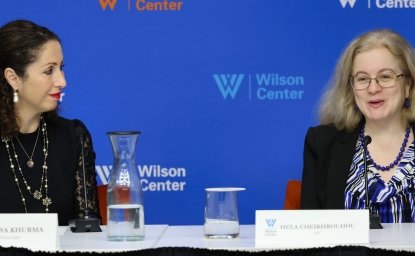The Latest
Quick analysis from the experts
As the world marks Women’s History Month 2024, Faria Nasruddin, Program Associate for the Middle East Program, looks at the barriers that remain for women in the MENA region, but also at the progress that’s been made. She comments on cultural pressures and unequal inheritance laws, and future opportunities for women in climate action.
Video Transcript
-
Women in MENA: Challenges, Progress, and Opportunity
Guest

Faria Nasruddin
Former Program Associate, Middle East Program

Middle East Program
The Wilson Center’s Middle East Program serves as a crucial resource for the policymaking community and beyond, providing analyses and research that helps inform US foreign policymaking, stimulates public debate, and expands knowledge about issues in the wider Middle East and North Africa (MENA) region. Read more

Explore More
Browse Insights & Analysis
How Education Can Empower Young Women in MENA
Posted date/time:

Empowering the Changemakers of Today: Young Women
Posted date/time:

Securing a Digital Future for Women and Girls in MENA
Posted date/time:




